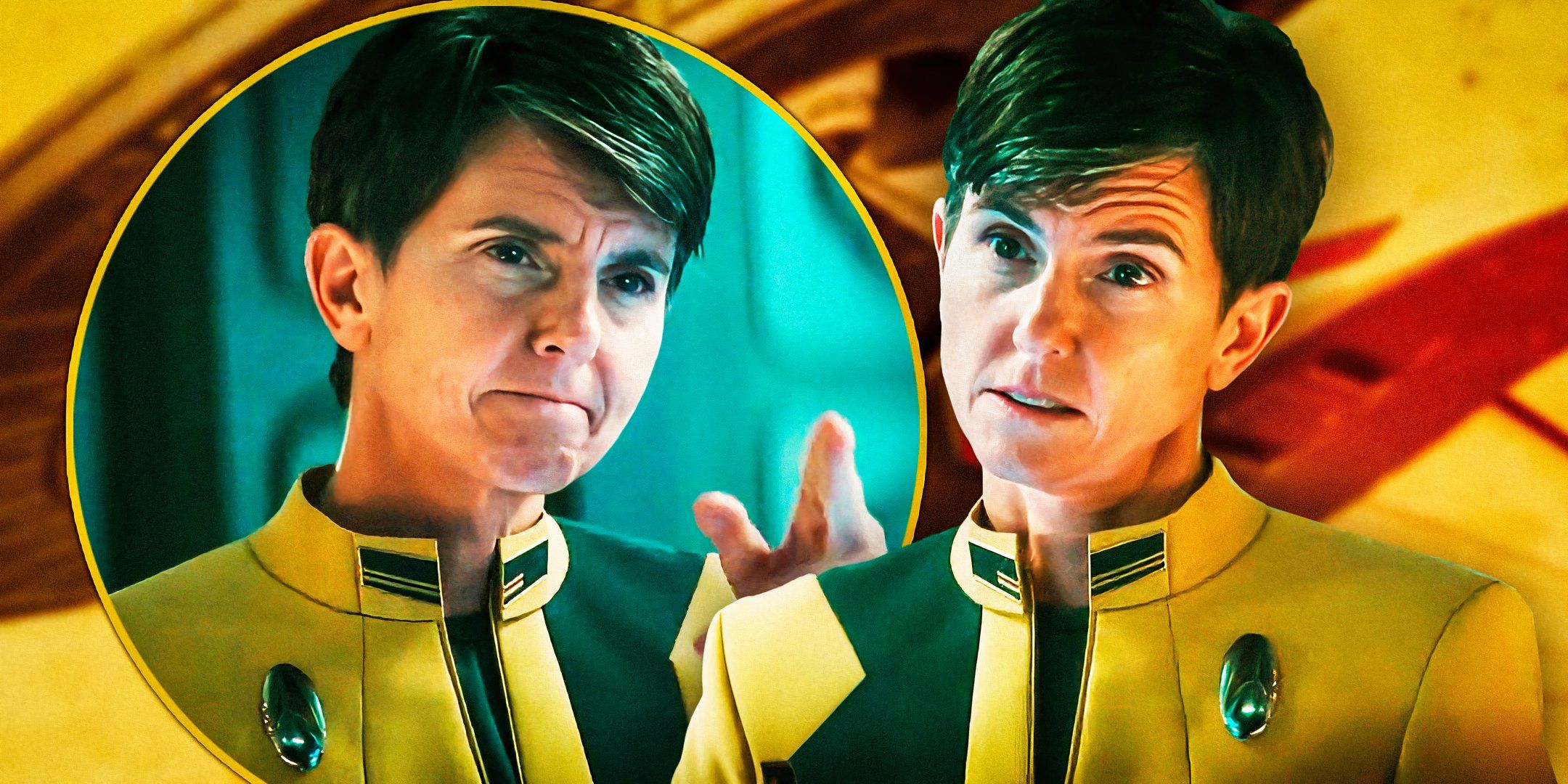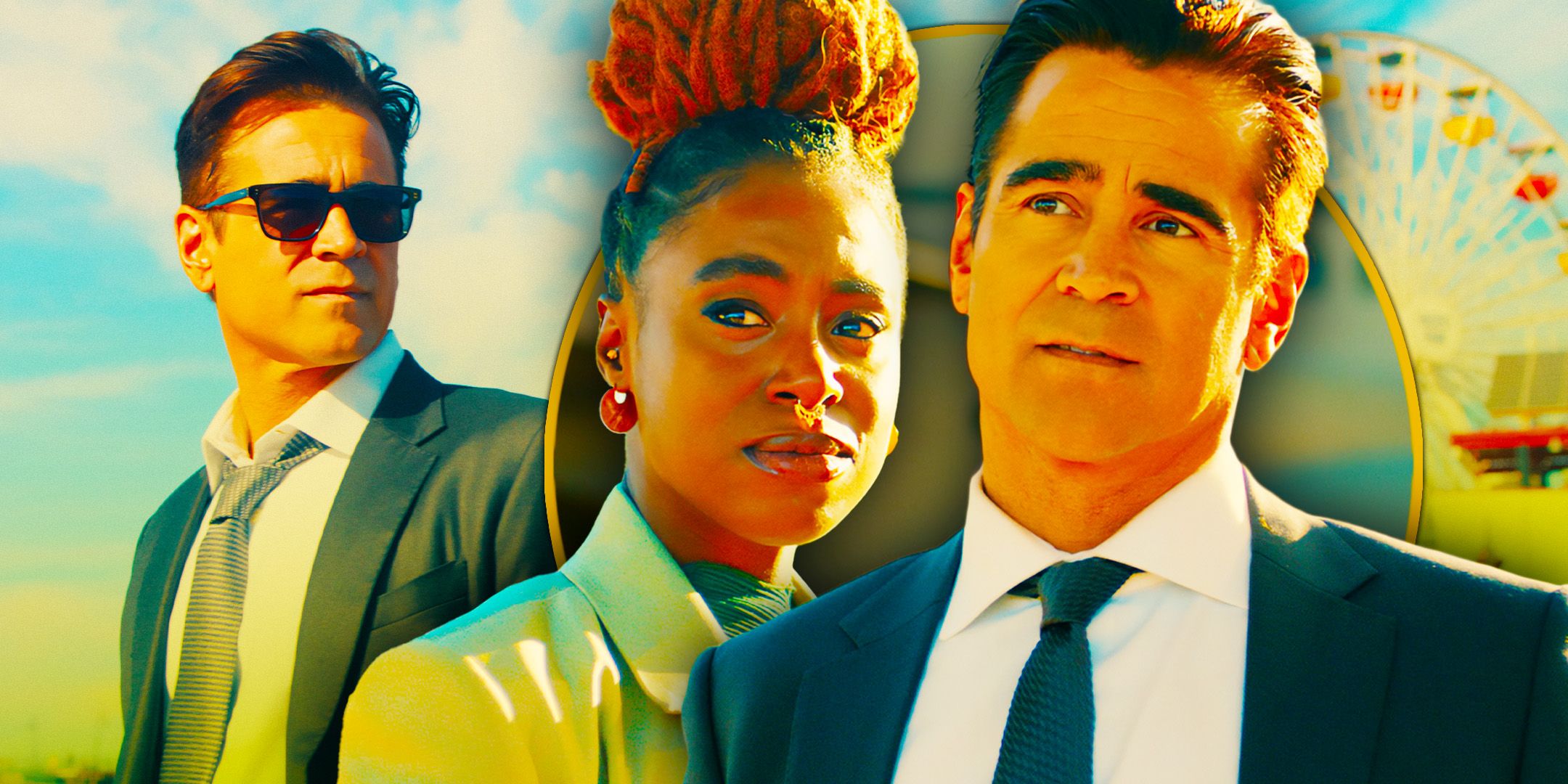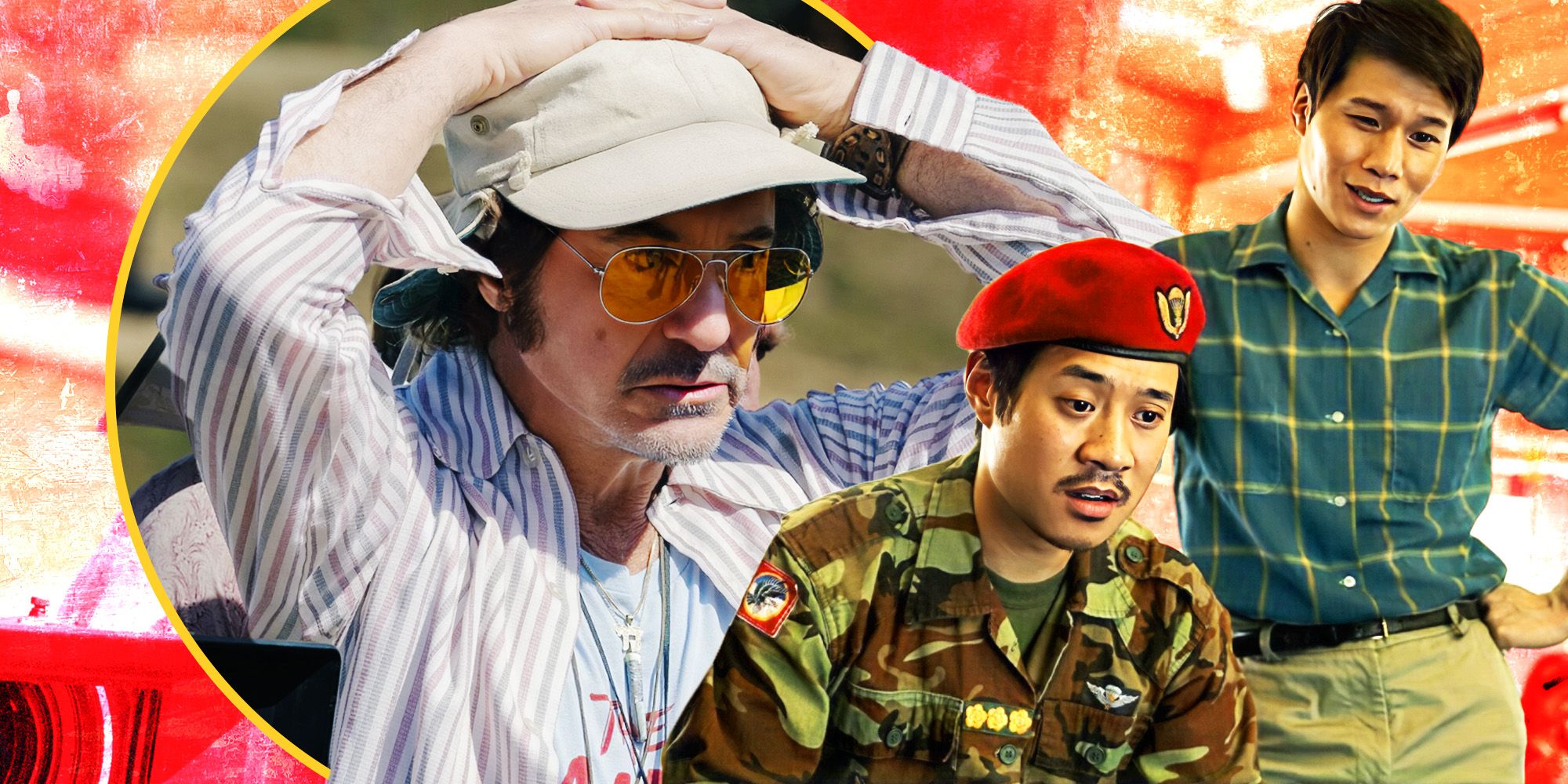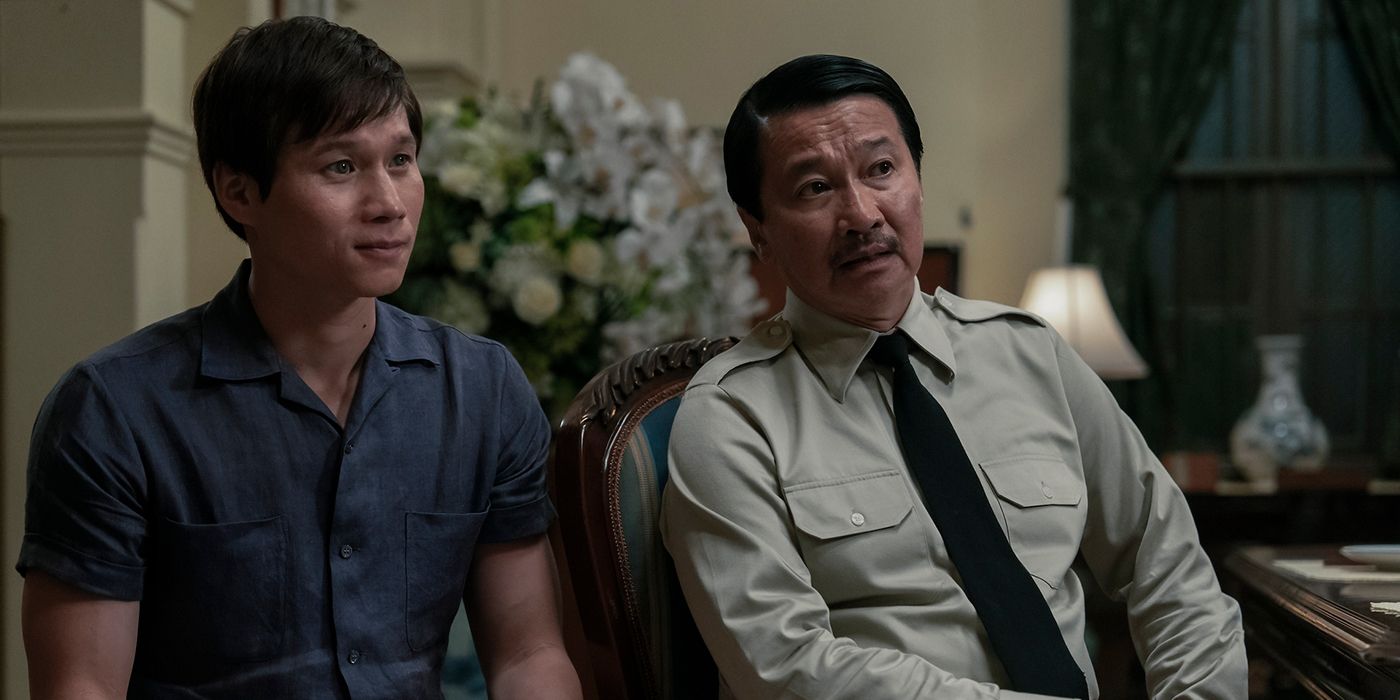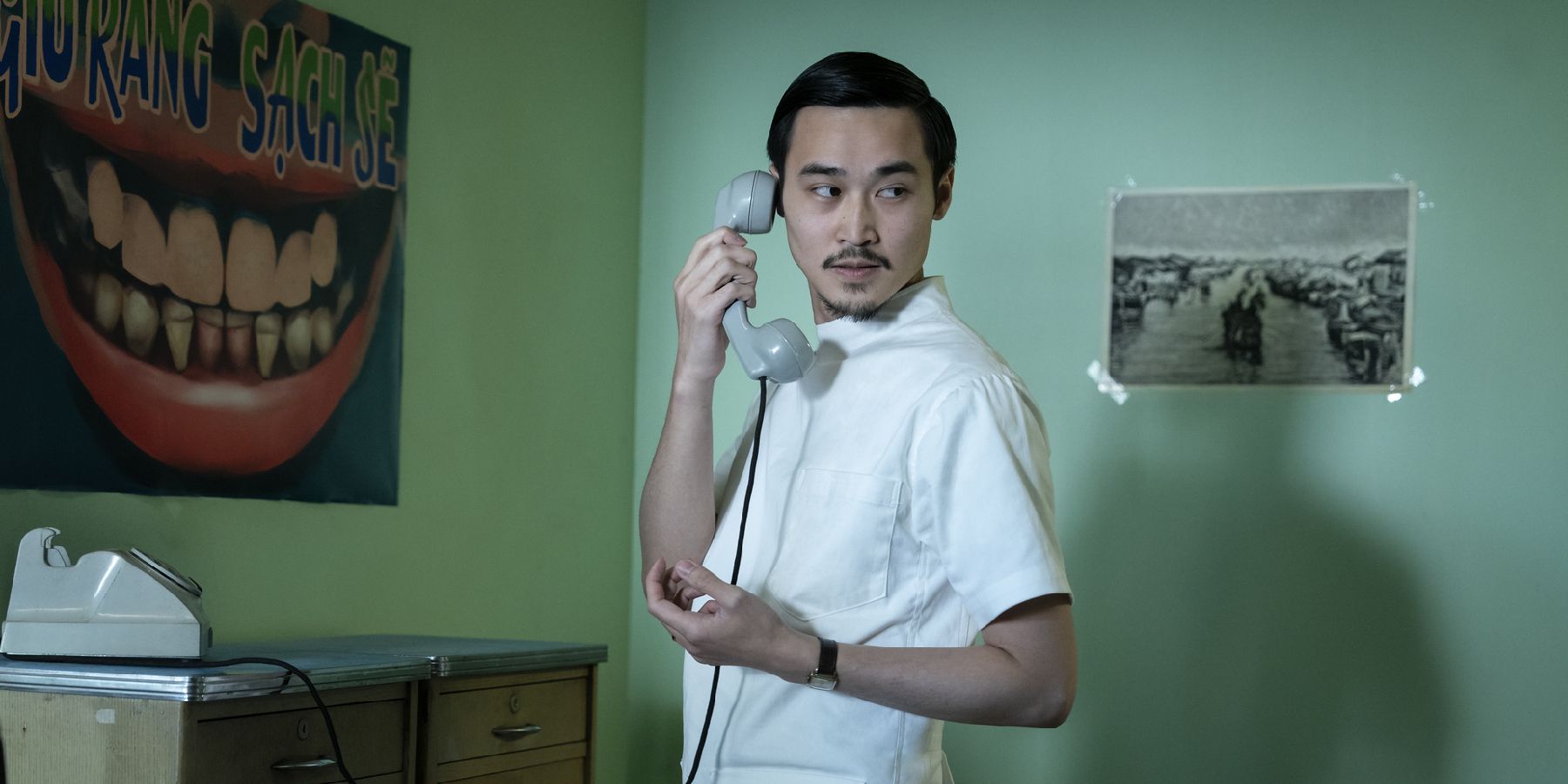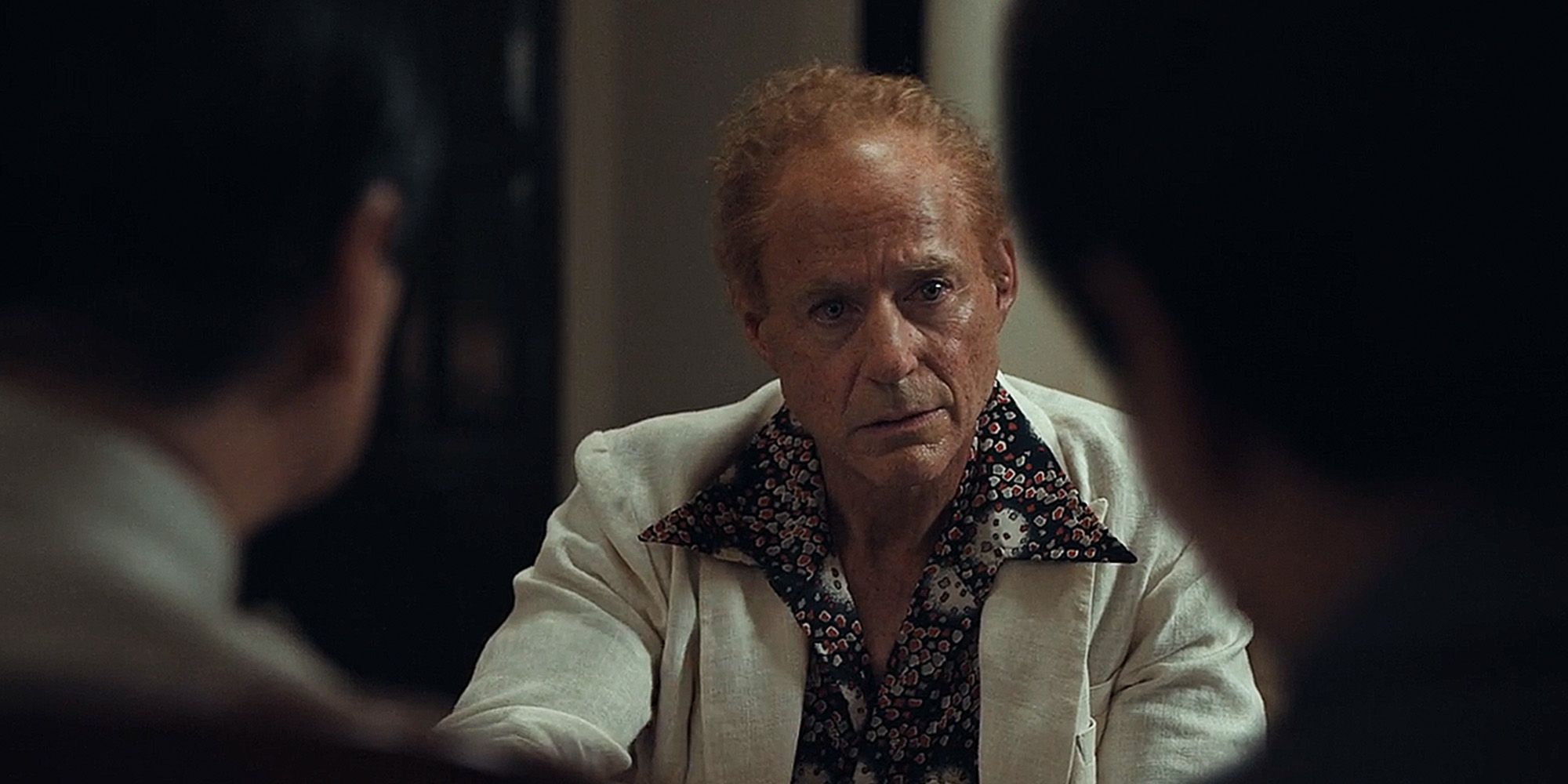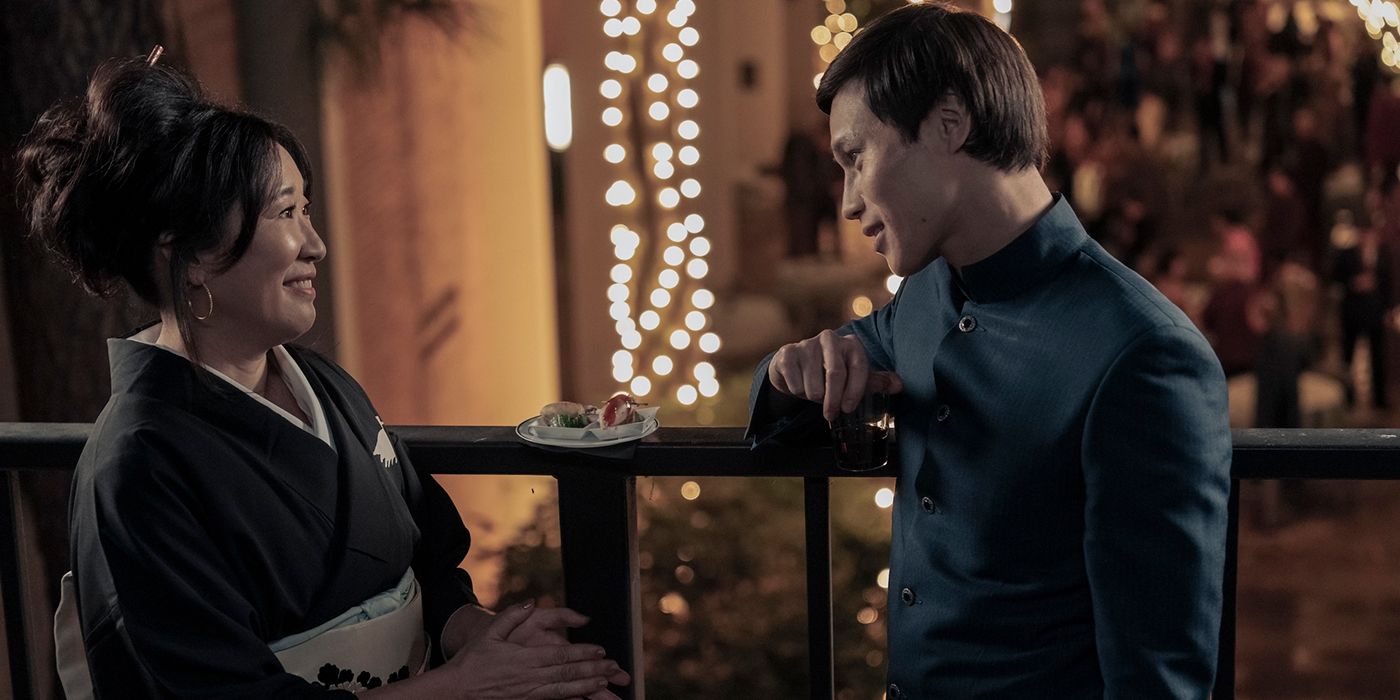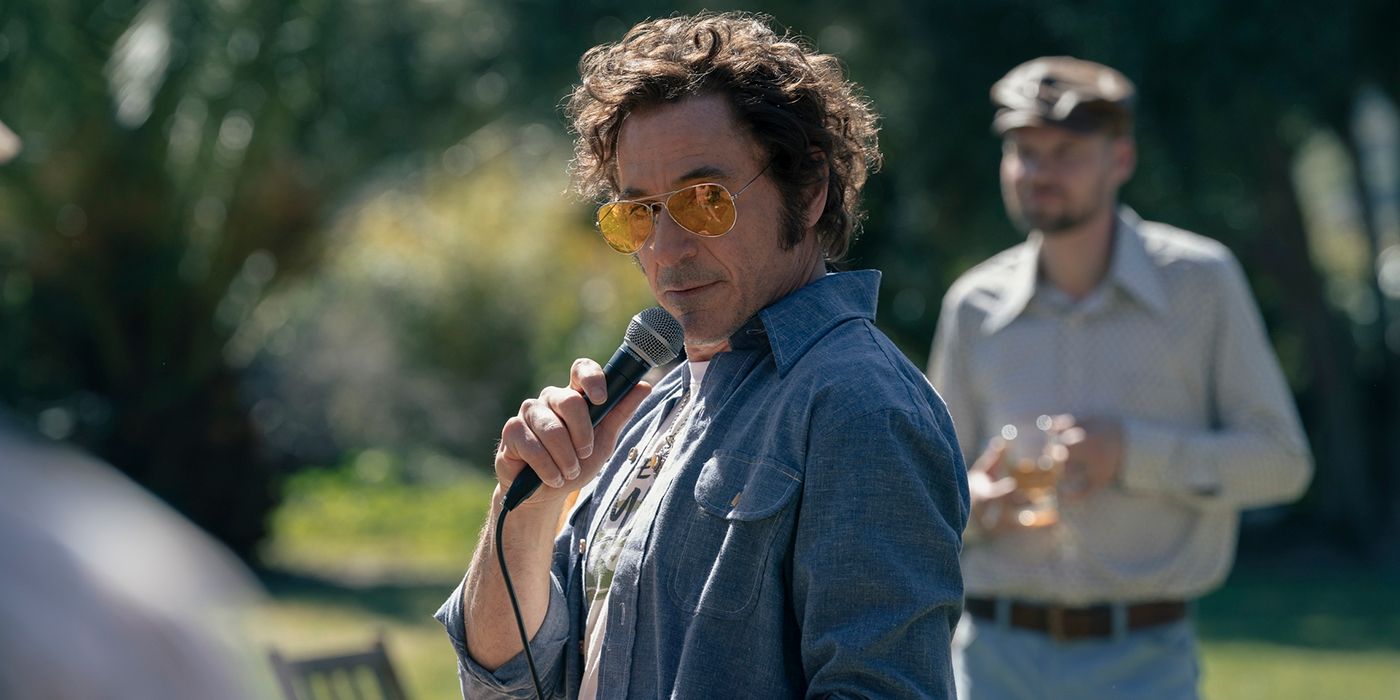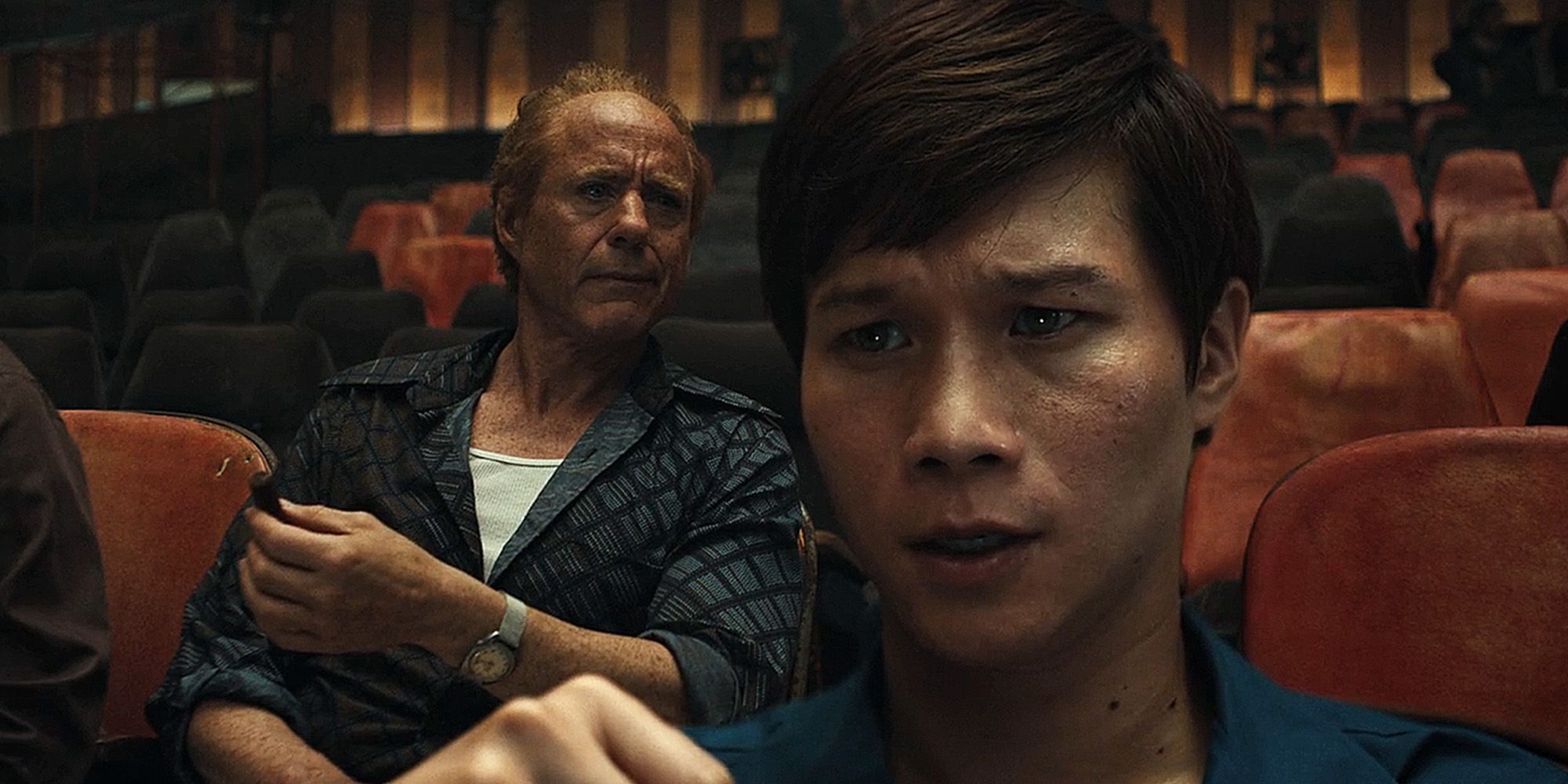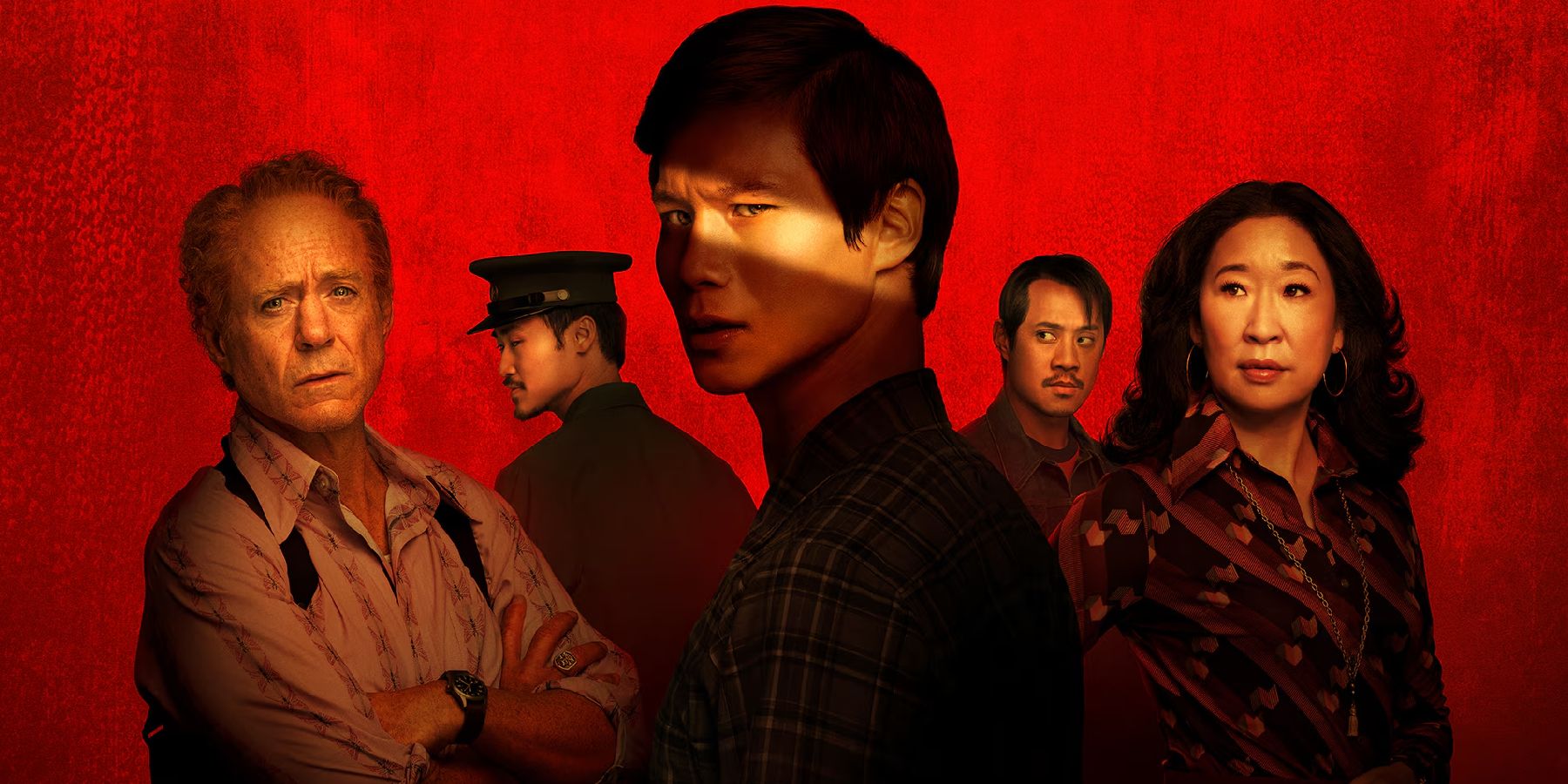Summary
- Team Downey reunites with HBO for The Sympathizer, featuring Robert Downey Jr. in four unique roles.
- The captivating Vietnam War-era thriller is based on Viet Thanh Nguyen's novel exploring espionage and immigrant struggles.
- Executive Producers Susan Downey and Niv Fichman prioritized authenticity by involving Vietnamese voices in all aspects of production.
Team Downey keeps their success streak with HBO going with The Sympathizer. The production banner headed by Susan Downey and Robert Downey Jr. first teamed up with the premium network for the Perry Mason revival/reboot, in which the Oscar winner was set to star before reverting to just an executive producer due to scheduling issues. In addition to HBO, Team Downey is also working with the network's sister streaming platform, Max, for two Sherlock Holmes spin-off shows.
Based on Viet Thanh Nguyen's novel of the same name, the HBO thriller centers on a North Vietnamese spy known as the Captain whose mission as a South Vietnam army plant continues beyond the end of the Vietnam War as he heads to the US with the latter's General in the hopes of undermining his mission. As he builds a new life there, though, he ultimately begins to question his mission and his loyalties. Hoa Xuande leads the ensemble Sympathizer cast as the Captain alongside Sandra Oh, Fred Nguyen Khan, Duy Nguyễn, Phanxinê, Kieu Chinh, Vy Le, Ky Duyen, Toan Le VyVy Nguyen and Alan Trong.
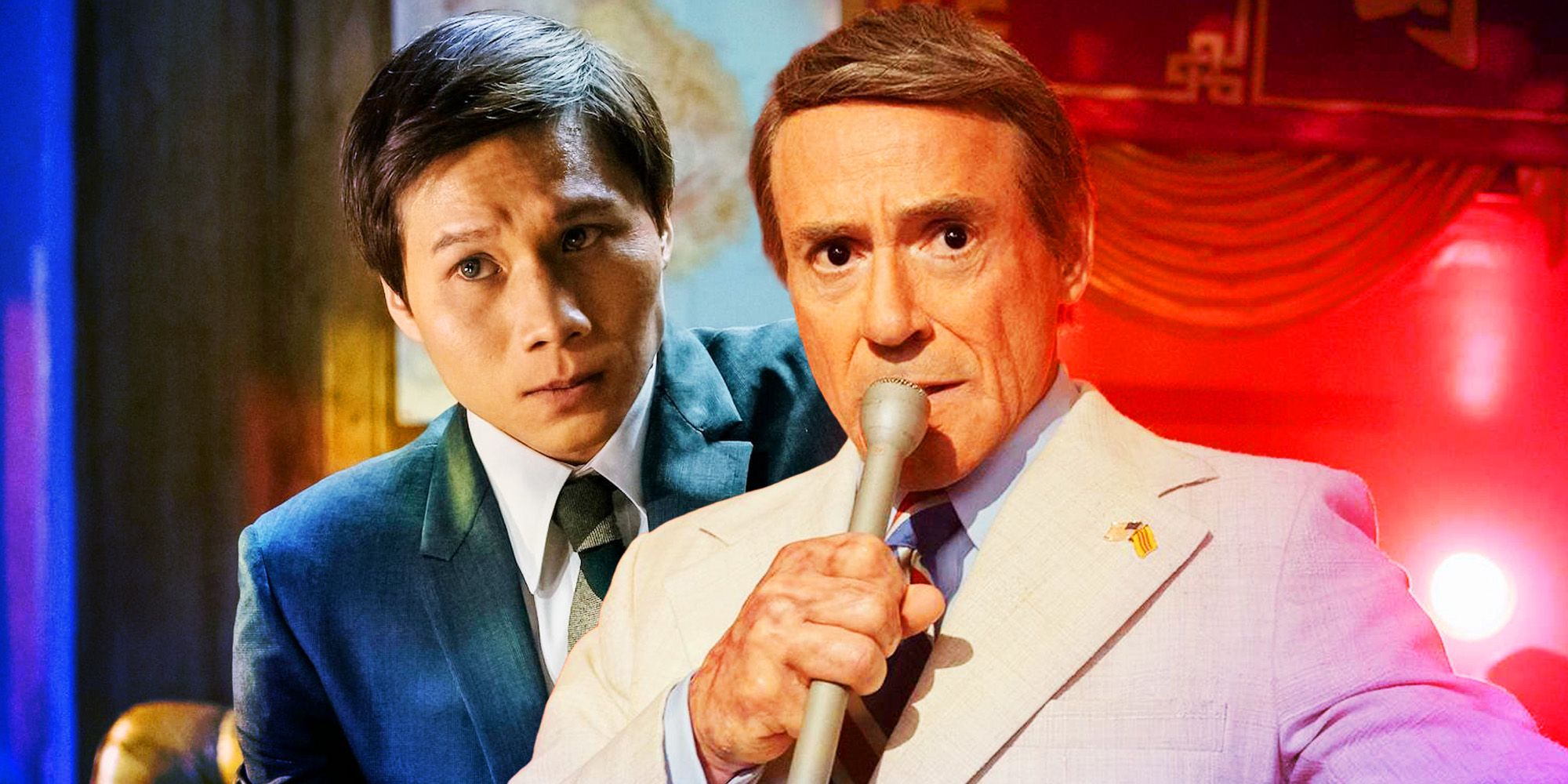
The Sympathizer Episode 1 Recap: 8 Biggest Reveals
The new A24 & HBO miniseries The Sympathizer begins months before the Fall of Saigon during the Vietnam War and introduces its mole protagonist.
Unlike Perry Mason, HBO's The Sympathizer finds Downey Jr. starring in not just one, but four different roles throughout the show. In the thriller miniseries, the Oscar winner plays Claude, a CIA agent; Niko, an auteur filmmaker inspired by Francis Ford Coppola; Professor Hammer, an Orientalist grad school professor; and Ned Godwin, a Southern California Congressman. The four figures all serve as key figures in the Captain's journey both before and after his arrival in America.
Ahead of the show's premiere, Screen Rant participated in a roundtable interview with executive producers Susan Downey and Niv Fichman to discuss The Sympathizer, what inspired them to adapt the Pulitzer-winning novel for the screen, Downey Jr.'s "brave" decision to take on multiple roles, and the meta storytelling of episode 4.
Being Outsiders To The Vietnamese Experience "Hung Over" Downey & Fichman
Though only in the executive producer chairs, Downey and Fichman were key figures in getting The Sympathizer off the ground and didn't take being outsiders to the Vietnamese experience lightly, with the former even noting that it "hung over us the entire time". Instead, they let this drive them to "assemble the best, most thorough and diligent group of people" to tell the show's story authentically:
Niv Fichman: I think that's up for you to tell us. We hope we did, we certainly tried super hard starting right with Viet Thanh Nguyen, who gave me, initially, the privilege and the honor of being the one that was responsible for the adaptation, and then remained a close friend and collaborator and partner throughout. We always intended to give full honor to the Vietnamese community, and to the people that were portraying, it was never even a question in our mind that the series wouldn't be significantly in the Vietnamese language.
We went to great lengths to cast people that spoke with the right dialect, the North and the South, and pre '75, post 75. Also, we had Vietnamese crew and people in all departments, starting from the scriptwriting phase to the production design, costume design, editing. We had Vietnamese linguists, both on set to monitor the language, and then we had Viet's own linguistics professor, who was the final authority when they saw the final episodes and gave us numerous notes on the language. So, we hope we did well, but in the end, it's going to be up to you and the community to tell us.
Susan Downey: And certainly, the question you asked is the one that hung over us the entire time we were making it, which is, as you said, it takes a village to do this. So, we tried to assemble the best, most thorough and diligent group of people to keep us on track. And then, for us, it was just trying to use all of the knowledge and experience that we have to really give a platform for a story like this to be told and seen by the widest audience possible.
The Sympathizer Took A Unique Journey To Get To Downey & Fichman
After being published nearly a decade ago, the ball began rolling on The Sympathizer coming to the screen in 2021 when Fichman was introduced to the book by Vietnamese actor/producer Kim Lee. This swiftly turned into a meeting with Nguyen in the hopes of getting the author's blessing to adapt it, which Fichman recalled feeling "stressed" after getting his approval as he needed to then "pay tribute to that honor". It was thanks to co-creators Don McKellar and Park Chan-wook and Team Downey that Fichman found the perfect team:
Niv Fichman: I was introduced to the book by Kim Lee, who's a pretty well-known Vietnamese actor and producer, who's a very close friend of mine. He's half Swedish, so he related to the main character being half European. And he introduced me to Viet, we had lunch right after he had won the Pulitzer Prize, and talked a lot about the book and our collective perspective on it. He gave me the honor of bestowing these rights, which, of course, then it made me stressed because I needed to pay tribute to that honor.
So, right from that first time, that first lunch, we discussed Park Chan-wook being the right collaborator for this, and I happen to have known Director Park a little bit, and so I reached out to him and he agreed to do it, and we brought on Don McKellar. Don and Viet kind of constructed the initial breakdown of the episodes, and then wrote an initial screenplay for the pilot, and then, Susan and her team became involved.
Susan Downey: I think for us, there was so many elements that contributed to our excitement about getting involved. I think that the source material being the key, we read the book a couple of times when it came in, along with the pilot and the breakdown of the rest of the season. And then, having Director Park on board enabled us to understand the tone and the vision of it. So, the opportunity there for Robert to play these four roles, which he sort of really enjoyed that challenge, definitely pushed Director Park to give a reason for him to play all four.
So, it wasn't just a gimmick, but you have this incredible acting opportunity for him. And from a producing side, to be part of this really talented group of filmmakers, and to take on an extremely challenging piece of material that forced us to look at something from a very different perspective, it was just new territory for us across the board. And as a result, we were leaning in.
Having Nguyen's Input Was Key To Retaining The Southeast Asian Voice Of The Novel
Though McKellar and Director Park may not be of Vietnamese descent, Downey and Fichman were consistently having conversations about ensuring they retained the Southeast Asian voice of The Sympathizer. Ultimately, they found that having Nguyen on board and sharing his input throughout the show's development was the biggest key to keeping this authenticity in place:
Niv Fichman: Well, I can tell you that right from the start, as I said, Viet was highly involved. So, the initial conversations, which took a couple of years before Susan became involved, were very much deep and substantive conversations that Viet represented that voice. We put the team together, I put the team together, because Don McKellar, who I've known for and worked with for 35 years, he's the one who introduced me to Director Park. And so I felt that Don would be a really good collaborator for him, because the two of them had worked together, so that the group kind of came together, and that Southeast Asian voice was Viet himself.
Susan Downey: Well, and I think as we've mentioned earlier, with someone's previous question, there was such a deep bench of Vietnamese contribution, in actually all departments, whether we're talking about hair & makeup, costume, production design, it was very important. As far as finding the other directors, part of the conversation was, "Is Director Park going to do all of them?" I think he recognized to adequately showrun the thing in the way that he wanted, he decided, ultimately, that he just wanted to take on the first three.
And then, we kind of recognized episode 4 as a bottle episode, and you [Niv] had a relationship with Fernando. We knew we needed to have kind of a different, frenetic sort of twist to it. And then for the last three, Mark was just an incredible filmmaker who was really going to allow Director Park's vision to be pushed through his lens.
And so for us, it was equally as important given we were kind of, I don't want to say covered on the Vietnamese side, because it was always something that we were very aware of, and were we doing things properly, but to keep that kind of international quality to the filmmaking as a whole. So, we ended up with directors from three different countries, and that was sort of the situation across all departments, and in front of the camera, people from across the globe came together to make this.
Downey Jr. Didn't Want His Multi-Character Role To Be A "Gimmick"
While one actor playing multiple characters in a project typically stems from an in-universe reasoning or a comedic choice, Downey Jr.'s four-character role in The Sympathizer is a far deeper one, tying to the story's theme of the Captain's perspective on America. This was essential not only for the show, but for Downey Jr. himself, as his wife/production partner recalled him loving the idea of playing multiple characters but ensuring in his conversations with Director Park that it wasn't "a gimmick":
Susan Downey: Well, I'll start with the Robert part, the first part is kind of an easy one because we didn't, but we can be more specific. He loved the idea, his biggest challenge back to Director Park was, "I don't want it to be a gimmick. So you have to come up with a reason that the Captain is seeing these men all so similar, even though they are unique." And he and Don McKellar stepped back, and they came up with something, as they looked back at the source material, and that's revealed by the end of the season.
But for Robert, I think he loved kind of the send up of the somewhat absurd, disgusting male American. It's these pillars of the patriarchy, from the art and media, to government, to the military to education. And I think he wanted to imbue certain characters more so than others with a real sense of humanity and depth. But he and Director Park really calibrated those performances in the look and the sound of the guys to have it slightly heightened, as it is the perception of the Captain. So for him, he was all for it. I think it was obviously brave to do and to be able to pull it off, but definitely was not hesitating.
Niv Fichman: And I can say, just remember that when we first started looking at this was is 2016, so the world was very different. I can truthfully say never in a million years would I have imagined back then that it would end up as an HBO/A24 prime series as it is. So, it's a huge honor, but throughout the entire process, A24 came first and then HBO after Team Downey joined. Everyone was absolutely supportive, super supportive. We started pre-Parasite and Squid Game, those weren't even mentioned.
But then those happened, and then the world changed with a pandemic, and all of those things happened. HBO, right from the start, gave us the carte blanche to create a series at this level, largely in the Vietnamese language, or substantially in the Vietnamese language, and without any kind of interference as to the politics or what it is that we're saying. So we're very, very privileged to be able to have done that.
The Sympathizer Is Meant To Be As Entertaining As It Is Thought-Provoking
The source novel deals with a number of heavy themes, including the negative immigrant experience, the shadiness of Hollywood productions in the '70s and the horrors of war. But amidst all this, while Downey and Fichman are keen on spotlighting these themes, they also hope that audiences will be "leaning in" to watch every episode, as it is "entertaining" as much as dramatic:
Susan Downey: Well, we hope, first and foremost, that they are leaning in, because it's entertaining, it's a place that they want to return to weekly, which is always really important. Even if you're dealing with heavy subject matter, or dark subject matter, you want to find a way to make it something that, again, as HBO does, they drop it once a week, you want people to return, so you start there. And then, I think it is our responsibility if you make art, it's important what you make, and it's important what you're trying to say with it.
But it's equally as important to not handhold an audience, and to just put out provocative things and let them have their own conversations. So, with this, one of the great things with the source material, with the way Viet's looking at this, is that there are many perspectives, there are multiple conversations to be had. Oftentimes, I found when watching it, more so than when we were developing it, you're following each character's trajectory, you're experiencing it with them. I found myself confused as to who I should be "rooting for" in any given moment, or any given scene, and a lot of that's based on what was indoctrinated into my head growing up in America.
And, "Isn't that guy the bad guy? Isn't that guy a good guy? But I'm rooting for the bad guy, but I'm feeling bad for the good. I just don't know what to think." And I think that's so important to kind of mess with people. So I think our big hope is that it does resonate, people lean in, they come for the fun. They come for the craziness of what Robert's pulling off, what Director Park is doing next, but they leave really thinking about some of the deeper themes.
Niv Fichman: Yeah, for me, I would add that it's the immigrant experience. I'm an immigrant to Canada, I came to Canada as an eight-year-old with my parents. So I have that, and the immigrant experience is very, very different today. It's very politicized, especially in this country and in Europe. Not as much so in Canada, although that's that's starting, we've had massive immigration. It's been a policy of our government for the past few years, and numerous refugees that have been welcomed by communities and Syrians, welcomed by synagogues and Afghans.
It's very beautiful, but now it's turning, and for the first time in Canada, we have an alternate, uglier voice that is speaking against that. So I just think, you know, in this case, the immigrant experience is so prominent, and I'm hoping that Americans and people all over the world can see this and see this as an example of a community that has come, not by choice, to America that has kind of thrived here. And is now a massive American community, 50 years later.
The Sympathizer's Meta Episode 4 Was Incredibly Important To Fichman To Keep
Among the various set pieces and character arcs retained from the source material in The Sympathizer is the fictional production of The Hamlet, a Vietnam War movie helmed by Downey Jr.'s auteur Niko, on which the Captain is tasked with inserting Communist rhetoric through the Vietnamese dialogue in the movie. When Nguyen and Fichman first began talks about adapting the book into a movie, the author was open to the segment being cut, but Fichman was unwilling to part ways with the arc:
Niv Fichman: So, I can tell you that first lunch that I had with Viet, the first thing he asked me, because we were talking at that point about film, not about a series, is, "What are you going to do about The Hamlet?" And I said, "Well, we have to have The Hamlet, it's such a great part of the book." He said, "Well, it could just be cut right out and nothing will change." And I said, "Yeah, well, we're not going to do that."
And of course, when it became a series, The Hamlet became kind of its own episode. But one thing that's significantly different from the series in the book is that Viet set The Hamlet in the Philippines, which of course was because that's where the big American war films that he was satirizing were set. We decided to set it in California, mostly in order to keep the other characters alive.
In the book, the Captain just goes there, and then all the others disappear for a while, for a whole chapter. Whereas in our case, we were able to keep them all there, which I think makes for a lot of the fun, and continues the series. Viet, when he heard that, thought, "Oh, God, I should have done that myself." [Laughs] So, I think we have his stamp of approval.
Susan Downey: For me, yes, there's all the fun that's the send-up of the Hollywood stuff. That's just kind of all the wonderful icing on top of the cake. For me, the most important part is what the Captain goes through during his time there. And I think that it is a pivotal point you could not get rid of it, because up until that point, he was fairly on-mission. He understood he was a spy, he really was longing to go home. It was all about getting the job done, and then he's sent off on this thing he doesn't even understand, "Why am I going? What am I doing? What it's gonna be like?"
What's crazy is in this fictitious version of his Hamlet, growing up as a child, it became very real to him. And it is through that experience, where he was losing himself and losing his perspective and questioning his identity in such a strong way that by the end of that episode, he's literally blasted out a different character. And as you see, the rest of it is him struggling to figure out that identity, which really gets challenged. So yes, you have all the fun Hollywood send-up, but it is a pivotal emotional journey for our lead character, which is why it warranted space as a full bottle episode in the whole series.
Team Downey Choose Their Project On A Feeling With "Some Really Good Questions Following"
With the production banner having everything from Perry Mason to Dolittle to The Sympathizer under their belts, Team Downey has shown a wide range of projects they've wanted to help bring to life behind the scenes. When it comes to figuring out which projects resonate with them the most to develop, Downey jokingly said she wishes there was "some master war room" with "some great game plan" for their decision-making, but it ultimately comes down to one thing:
Susan Downey: Well, there's a lot of factors that go into it. I wish I could tell you that we sit back and there's some master war room that we have, some great game plan, and this is exactly what we're charting to do, and blah, blah. It's just not the case. We both just lead with an artistic eye towards what speaks to us and what value we think we can add to a project. And sometimes, in a situation like this, something perfectly suited for him pops into our lap.
It gives him a creative challenge that he hasn't faced before. It gives our company an opportunity to work with incredible people, and tell what we think is a very important, and hopefully entertaining at the same time, story. And then, sometimes there are things that just don't make sense for him to do but we, as a company, connect with it. It's always about what are you saying, and to make anything — even the fastest track is a couple of years in your life — you just look at your ultimate bandwidth.
Robert's very good about pressuring me to be able to answer the question of, "Why are we doing it? What is it that we're getting out of it?" And that's not about money, that's about the creative experience, and kind of building on, as you said, our filmography. "Is it adding a dimension that we haven't already kind of explored?" I wish it was more than just a feeling, but it kind of is that with some really good questions following once we kind of like something. [Chuckles]
About The Sympathizer
Based on Viet Thanh Nguyen’s Pulitzer Prize-winning novel of the same name, THE SYMPATHIZER is an espionage thriller and cross-culture satire about the struggles of a half-French, half-Vietnamese communist spy during the final days of the Vietnam War and his new life as a refugee in Los Angeles, where he learns that his spying days aren't over.
Stay tuned for our other Sympathizer interviews with:
- Fred Nguyen Khan & Duy Nguyễn
- Phanxinê & Kieu Chinh
- Sandra Oh & Hoa Xuande
- Park Chan-wook
- Vy Le, Toan Le & Ky Duyen
- Don McKellar
New episodes of The Sympathizer air Sundays on HBO and Max.
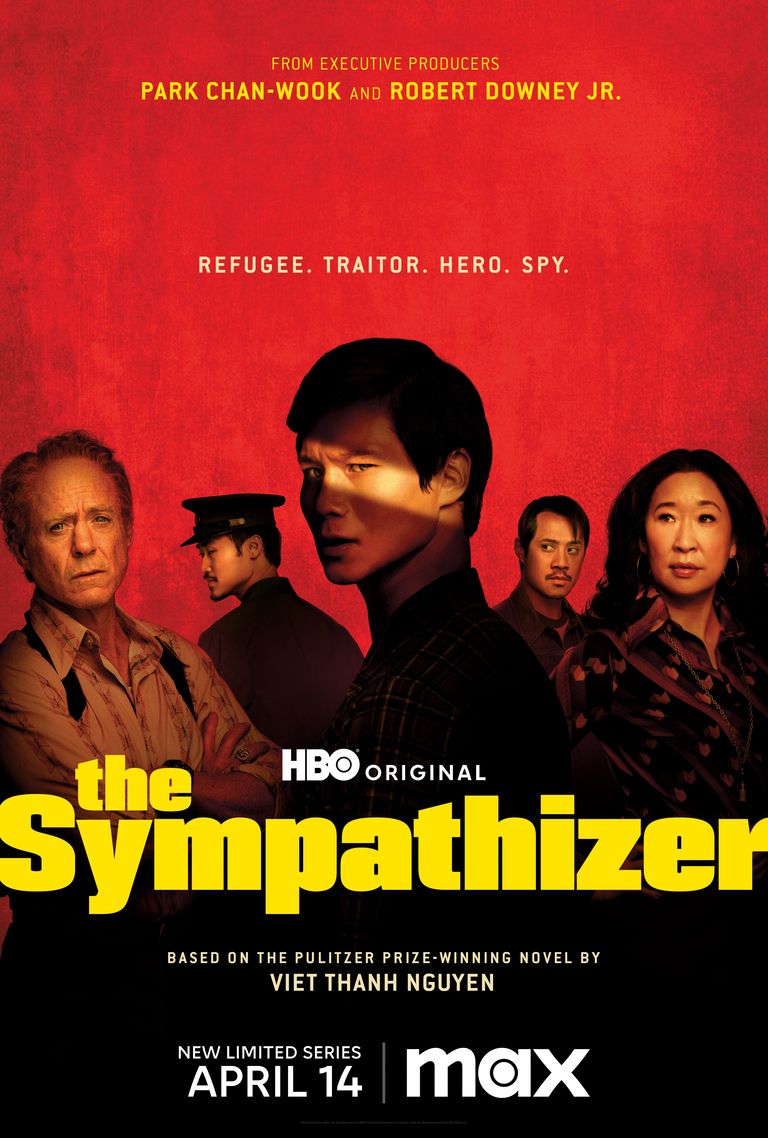
The Sympathizer
Based on the novel by Viet Thanh Nuyen, The Sympathizer explores the last days of the Vietnam War through the eyes of a half-Vietnamese, half-French spy serving for the communist regime. The TV series adaptation is set-up as a mini-series and will likely still be framed as a confession from the protagonist as they make their way through the war. Photo is of the original novel cover.
- Cast
- Robert Downey Jr. , Kieu Chinh , VyVy Nguyen , Kayli Tran , Evan Shafran , Sandra Oh
- Seasons
- 1
- Writers
- Don McKellar , Viet Thanh Nguyen
- Main Genre
- Drama
- Production Company
- A24, Rhombus Media, Team Downey, Moho Film, Cinetic Media


